Gas is one of the most important fuels in your home, especially during winter. The pipes deliver the gas: Two of the most commonly used pipes are galvanized and black pipes. But can you mix the use of these pipes? We researched this topic, and here is what we gathered.
Yes, you can. The only distinction between a black pipe and a galvanized pipe is that the galvanized pipe has a zinc coating to stop the underlying steel from corroding. Both pipes fit together easily because they are essentially the same material.
So how do you combine these two types of pipes? Read more to find out! We'll also discuss the pros and cons of using each type. Additionally, we'll also tackle the characteristics of each one. Moreover, we'll cover the signs showing that you need to replace or repair your gas lines and if you can use galvanized and black pipes underground. Keep reading!
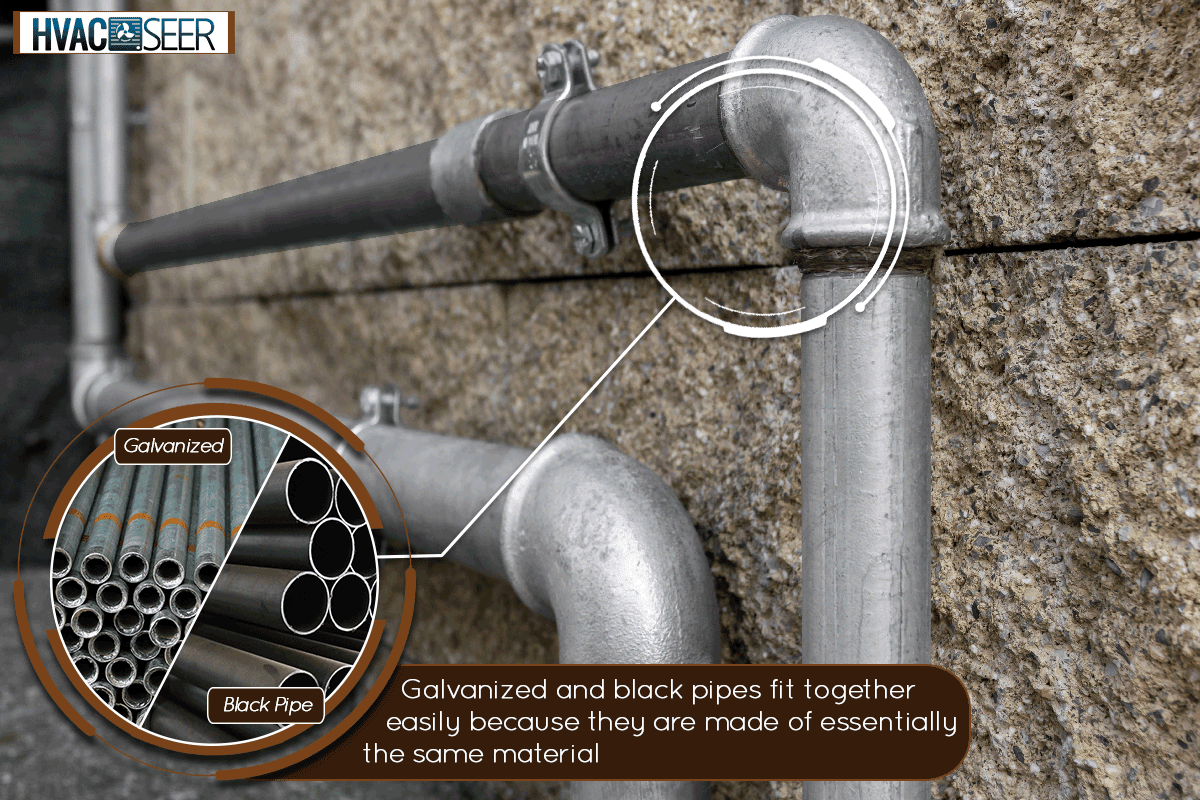
How To Mix Galvanized And Black Pipe Gas Line?
Now that you know it is possible to combine galvanized and black pipes, here is a simple guide you can follow on how to connect black pipes to galvanized pipes.
- Use a wire brush to scrub the black pipe's threads completely to get rid of any corrosion and rust. If you won't be utilizing the pipe right away, lubricate the threads with a little penetrating oil. Rust can quickly regenerate in the presence of water or humidity.
- Use Teflon tape to cover the black pipe's threads. Wrap the tape around the threads until it has two to three inches thickness of layers of tape. Looking at the end of the pipe, roll the tape around in a clockwise direction.
- Until it is hand tight, tighten the black pipe into the galvanized pipe. You should tighten the black pipe by turning it clockwise with a pipe wrench.
- In the same way, connect any additional pipework.
What Are Galvanized Pipes?
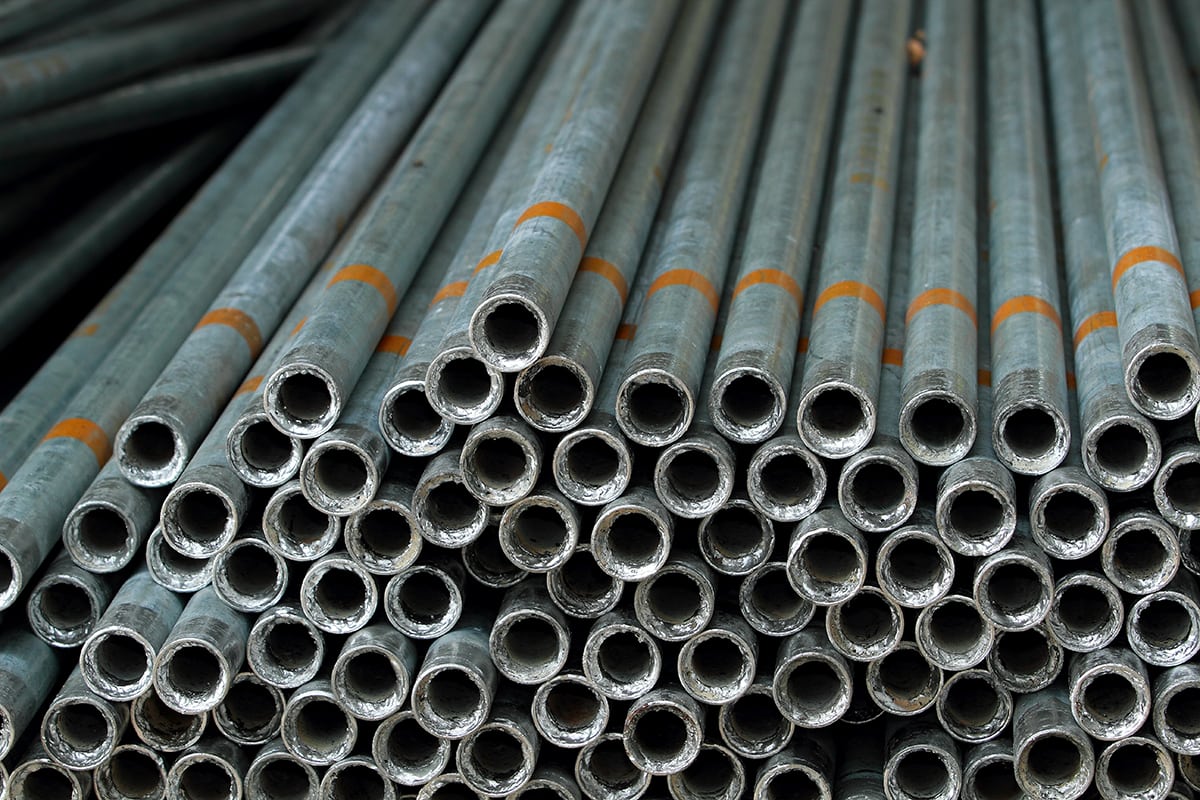
Galvanization is the process of applying a protective zinc layer to steel or iron. Simple steel pipes that have been coated with protective zinc to assist them in resisting rust and corrosion are known as galvanized pipes.
In homes and family neighborhoods around the country, galvanized pipes are still widely used.
Galvanized steel gas pipes are strong and energy-efficient. Galvanized steel pipes are perfect for water supply lines and are frequently used for interior and external gas lines.
Due to its labor-intensive nature in comparison to other materials, this material is typically seen in older homes and is not employed in modern buildings.
The Pros And Cons Of Galvanized Steel Pipe?
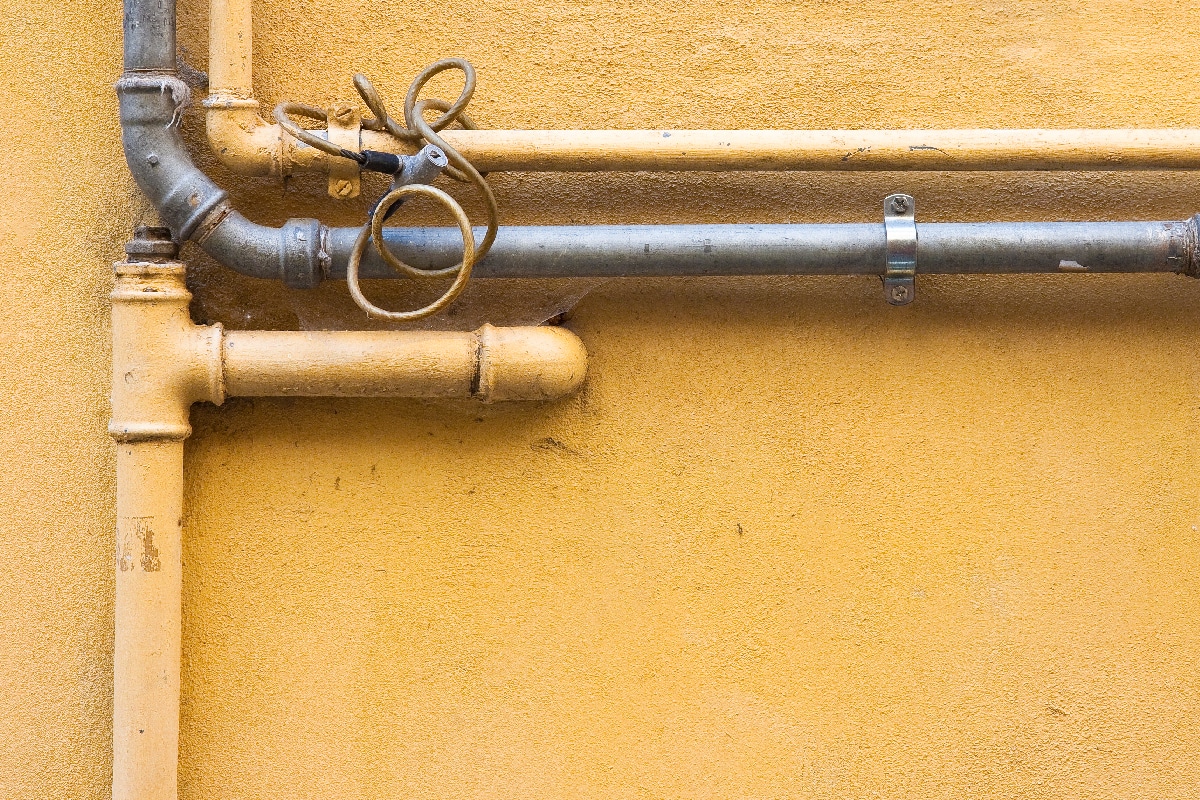
Here are some pros and cons of using galvanized pipes:
Pros
- The iron in steel can quickly rust by reacting with air and water, which would cause the object to deteriorate. It is more difficult for these substances to generate such a reaction when coated in zinc.
- The galvanizing procedure typically costs less than other well-liked pipe protection techniques. This is so because other techniques typically need a lot of physical exertion, whereas galvanizing doesn't.
- Additionally, galvanized steel pipe has a very long service life. In many rural places, it may be used for more than 50 years, while in extremely exposed urban and coastal environments, it can be used for more than 25 years. Low maintenance costs are the outcome.
- Galvanized pipe inspection is a straightforward and transparent operation. Galvanized coatings can be visually inspected and checked for thickness using a straightforward nondestructive testing technique.
- GI pipes are simple to bend and simple to construct.
Cons
- Galvanized pipes' zinc barrier does stop corrosion for a while, but it takes a very long time to completely remove. This causes the pipe to start corroding internally, which may eventually cause a leak or pipe burst.
- Corrosive substances and lead from exposed metals may seep into your gas supply as a result of the corrosion of galvanized pipes. When this takes place, the minerals begin to accumulate inside the pipes as plaques. And can cause damage to your system.
- Galvanized pipes are somewhat difficult to handle because they are typically constructed of iron or steel.
- Since GI pipes may only withstand pressures up to 145 PSI, they cannot be used in industrial settings where the pipe must withstand high fluid or gas pressures.
What Are Black Pipes Made Of?
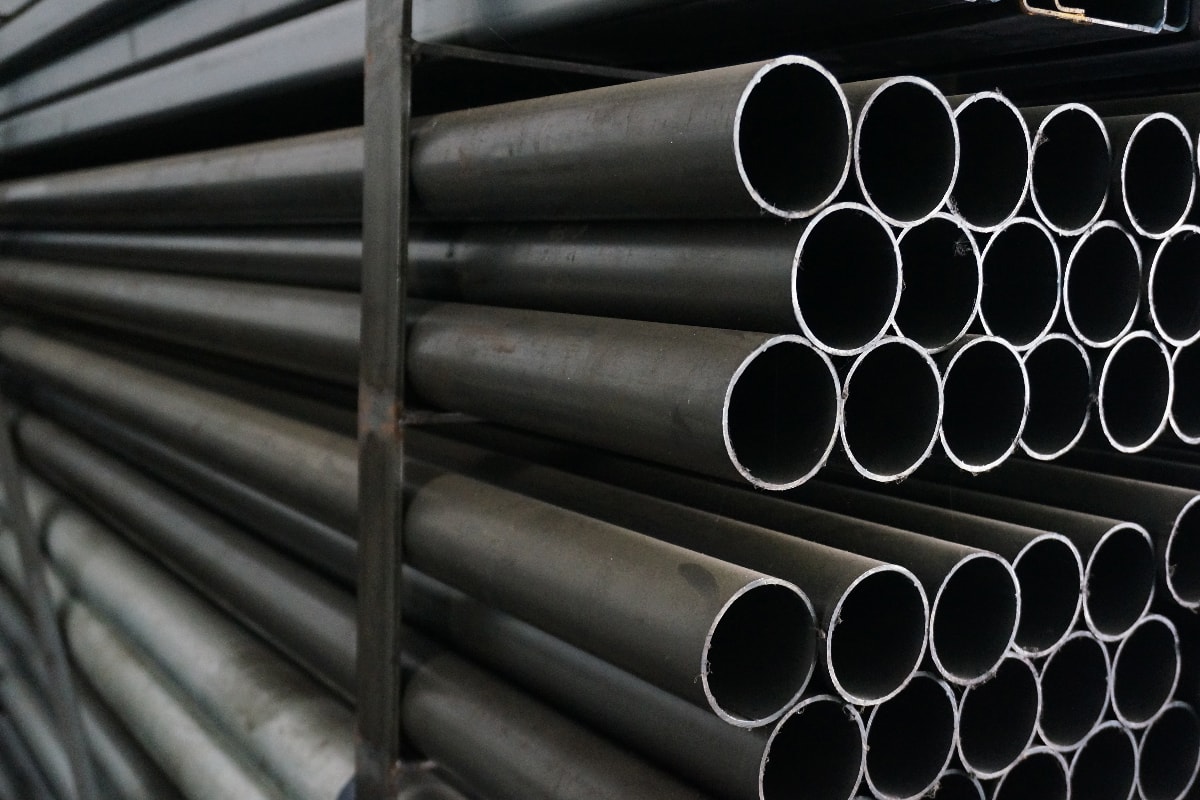
Black pipes are made of steel that hasn't had a finish applied to them, such as paint or zinc. It is known as black steel pipe because of the surface's dark hue, which iron oxide creates throughout the manufacturing process.
Because of its durability and low maintenance requirements, you can use black steel pipes in a range of applications. They are typically utilized for conduits that safeguard electrical wiring, transmit high-pressure steam and air, and convey gas and water to both rural and urban regions.
Additionally, the oil and petroleum sectors use black steel pipes to transport massive amounts of oil across far-flung locations.
What Are The Pros And Cons Of Using Black Pipes?
To understand black pipes better, here are some of their pros and cons:
Pros
- Black iron pipe's strength is among its main advantages. It is suitable for natural gas use since it can bear high pressure.
- Additionally, black iron is corrosion-resistant, so unlike certain other kinds of metal pipes, it won't rust with time. As a result, it is a dependable option for long-distance gas transportation.
Cons
- For starters, it isn't extremely flexible, making installation challenging in confined locations.
- Additionally, it is fairly hefty, which makes moving it once it is placed difficult.
- Finally, black iron is also pricey compared to other forms of gas piping.
Can You Use Galvanized And Black Pipes For Underground Gas Lines?
Many places restrict the underground transportation of natural gas in galvanized pipes. This is because they will eventually corrode and may result in a gas leak. Instead, you must use a steel pipe that has been factory coated.
The same holds true for pipes made of black iron. They shouldn't be utilized underground because they are neither coated nor galvanized and corrode more quickly than galvanized pipes. A specific steel pipe coated with plastic materials must be employed to keep out the moisture.
What Are The Signs That Your Gas Line Has A Problem?
By regularly checking your gas lines, you can identify signs of wear and tear and avert more significant issues in the future. These pipes, in contrast to other supply lines, can be very dangerous if not immediately repaired.
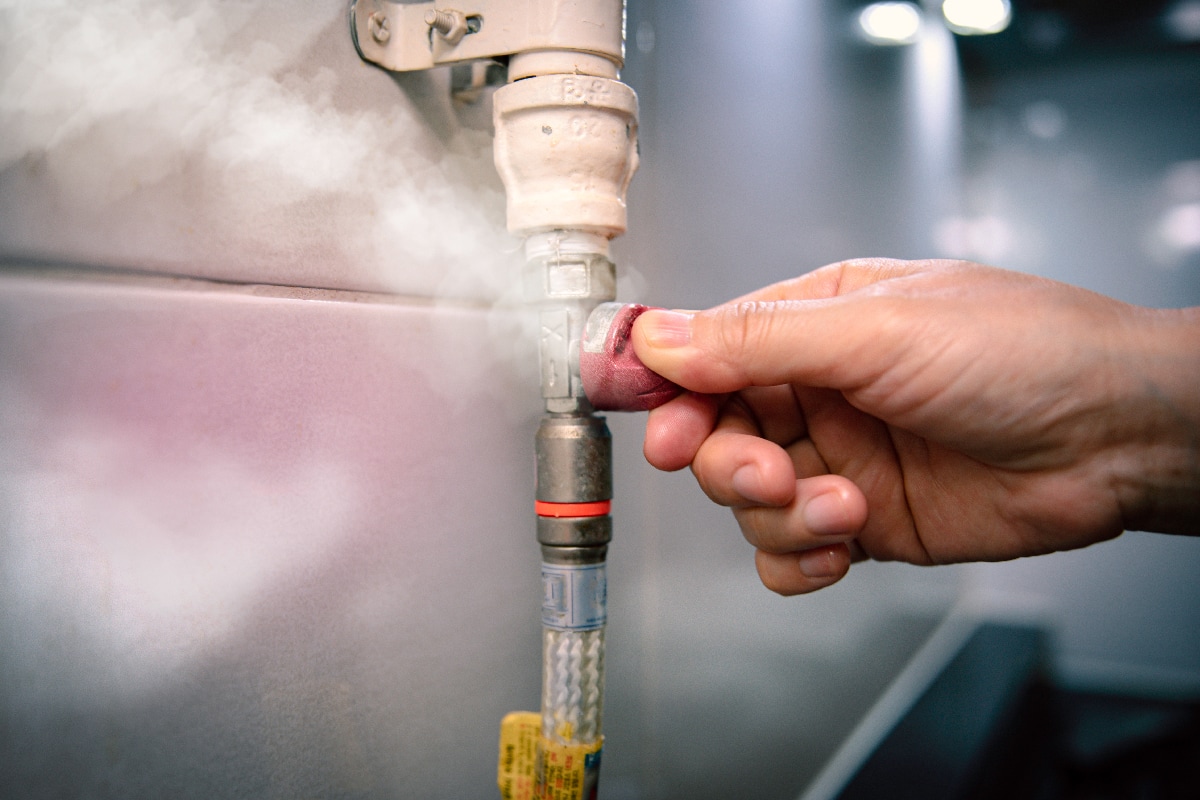
Here are some signs that you need to repair or replace your gas lines.
Visible Rust, Corrosion, or Cracking
High gas pressures, the environment, and wear can all increase your gas lines' risk of damage over time. The compression of the material may crack and split these pipes.
In addition, oxygen and moisture can cause corrosion in your pipe and fittings. While this might initially only be a minor inconvenience, over time, rust can form and seriously harm your gas lines. In light of this, now is an excellent time to replace any extremely old pipes you may have.
Not Enough Fuel to Appliances
One appliance not being afforded enough fuel can signify a larger issue in your gas line. You'll want to troubleshoot the appliance and also inspect the gas lines.
Expensive Utility Bills
Faulty gas lines often lead to increased utility bills. Immediate repairs might be required, and you should consult a professional, especially if any leaking is observed. Leave the home immediately if a leaking gas line is detected.
Alternatively, inspect your appliances as well just in case they need upgraded or repaired to resolve an inefficient fuel supply.
Rotten Egg Smell in Your Home
Although natural gas has no discernible scent, some suppliers include a substance called Mercaptan to help you sniff out gas leaks. It has a strong sulfuric or rotten egg odor. In some circumstances, you might even hear your pipes hissing. Again, if you suspect a gas leak, leave home and contact the provider for immediate assistance.
Emergent Health Issues
Any signs of gas poisoning are serious. The gas can cause unconsciousness and death if exposed for an extended period.
Symptoms may include:
- headaches,
- nausea,
- dizziness,
- difficulty breathing,
- pale skin,
- blisters,
- itchy eyes, and throat.
You must leave the area immediately, leaving the door ajar for ventilation. Dial the emergency numbers for your local fire department and gas company to investigate the gas lines. Seek medical consultation right away.
Final Words
Black and galvanized pipes can be used together to carry natural gas unless prohibited by the local plumbing code. The connection causes a reaction between different metals, which is unimportant if the link is in the atmosphere but significant if it is underground.
If you enjoyed this post, you can check out these related articles to know more:
